6 Rock Songs That Reference J. Robert Oppenheimer
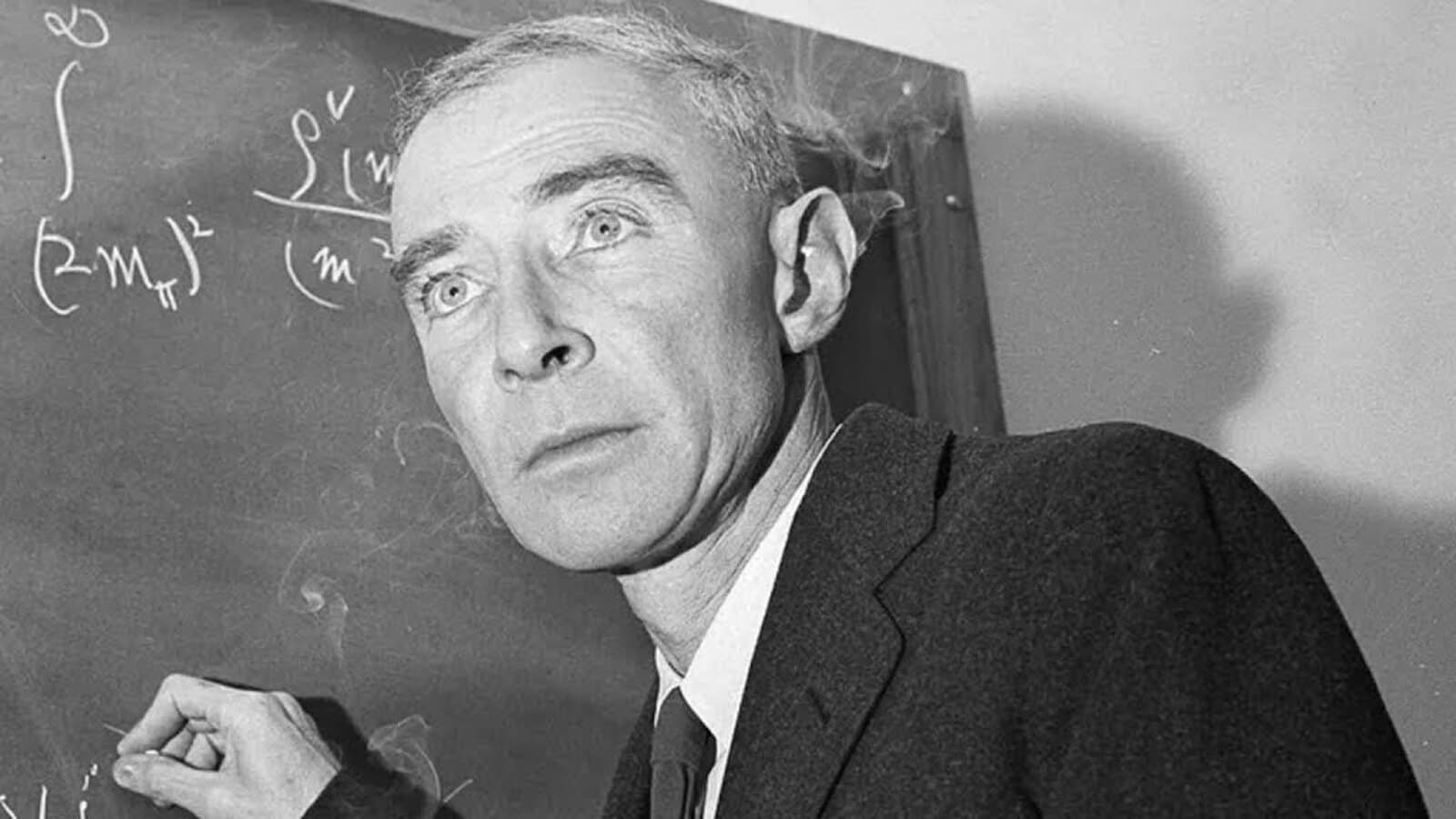
Christopher Nolan‘s latest movie ‘Oppenheimer‘ out this week, is in theaters and tells the stories of J. Robert Oppenheimer. Everyone knows Oppenheimer the “Father of the Atomic Bomb,” received a position on the Manhattan Project during World War II due to his training in theoretical physics. The scientist was essential in creating the first nuclear weapons while leading the laboratory in New Mexico. In this article, we listed songs that reference J. Robert Oppenheimer.
Songs References J. Robert Oppenheimer
Christopher Nolan wrote and directed the 2023 epic biographical thriller movie Oppenheimer. This movie is based on Kai Bird and Martin J. Sherwin‘s 2005 book American Prometheus; the story follows the life of J. Robert Oppenheimer, a theoretical physicist who was instrumental in producing the first nuclear weapons as part of the Manhattan Project, ushering in the Atomic Age.
Cillian Murphy plays the primary figure, with Emily Blunt as Oppenheimer’s wife, Katherine “Kitty” Oppenheimer, Matt Damon as Oppenheimer’s military manager, General Leslie Groves, and Robert Downey Jr. as Lewis Strauss, a senior member of the United States Atomic Energy Commission. Florence Pugh, Josh Hartnett, Casey Affleck, Rami Malek, Tom Conti, and Kenneth Branagh round out the cast.
Here is the synopsis of the ‘Oppenheimer’ movie:
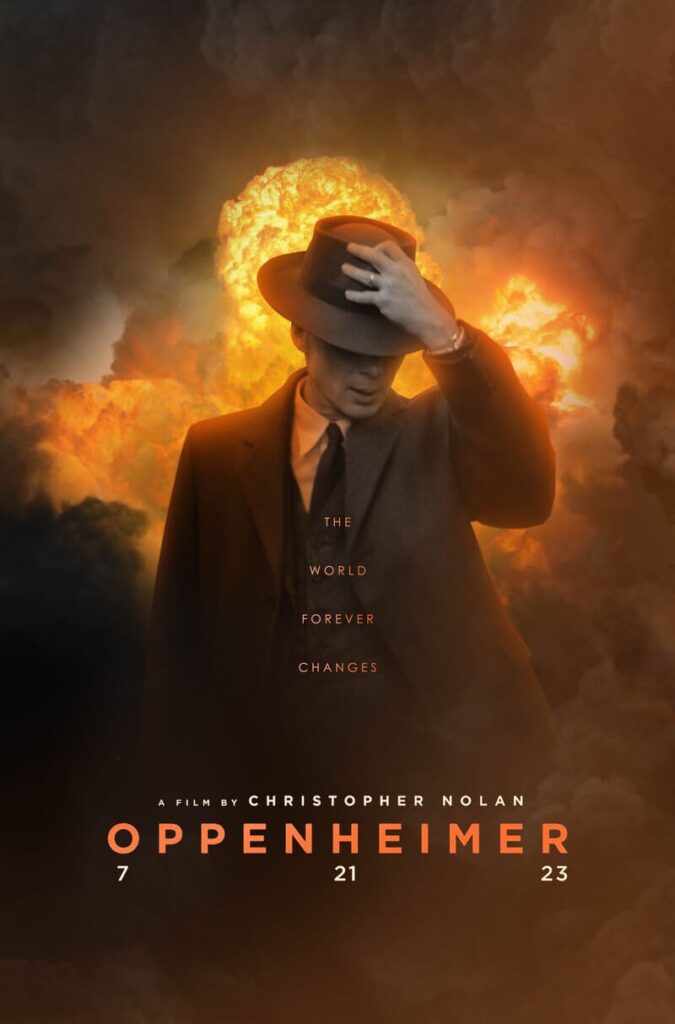
“During World War II, Lt. Gen. Leslie Groves Jr. appoints physicist J. Robert Oppenheimer to work on the top-secret Manhattan Project. Oppenheimer and a team of scientists spend years developing and designing the atomic bomb. Their work comes to fruition on July 16, 1945, as they witness the world’s first nuclear explosion, forever changing the course of history.”
Oppenheimer was born on April 22, 1904, and his genius and contributions to theoretical physics earned him the alias “father of the atomic bomb.” On July 16, 1945, his leadership and intellect were critical in the successful explosion of the first atomic bomb in the New Mexico desert.
Despite his substantial contributions to the war effort, Oppenheimer came under fire after the war for his involvement with the project and political ideas. Oppenheimer was exposed to a security clearance hearing in 1954 after being accused of communist sympathies during the McCarthy period. This led to the termination of his security clearance and momentarily harmed his image.
Following these events, Oppenheimer returned to academia, focusing on theoretical physics and supporting international collaboration in scientific research. He was instrumental in founding Princeton University’s Institute for Advanced Study and was director from 1947 until his retirement in 1966.
However, many songs also reference J. Robert Oppenheimer‘s genius and contributions and his alias for “father of the atomic bomb.” You can check 6 songs about J. Robert Oppenheimer below!
Which songs reference J. Robert Oppenheimer?
- Old 97’s – Oppenheimer
- Manhattan Project – Rush
- Sting – Russians
- Billy Bragg – Waiting for the Great Leap Forwards
- The Radiance – Linkin Park
- Napoleon’s Hat – Bright Eyes
Let’s check these songs and what they tell about Oppenheimer and his contributions:
1. Old 97’s – Oppenheimer
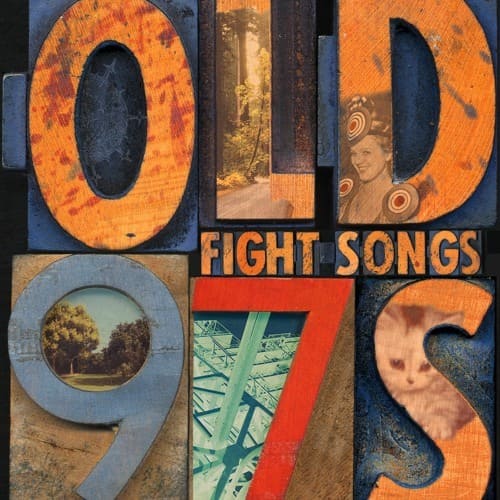
“Oppenheimer,” a well-known song by the alternative country-rock band Old 97’s, pays tribute to J. Robert Oppenheimer, the brilliant physicist who invented the atomic bomb. The song, released as part of their album “Fight Songs” in 1999, captures the essence of Oppenheimer’s turbulent life and contributions to history with its passionate combination of appealing melodies and thought-provoking lyrics.
The lyrics dive into J. Robert Oppenheimer’s rich personality and enormous effect, analyzing his involvement in the Manhattan Project and the moral quandaries surrounding the development of the atomic bomb.
As lead vocalist Rhett Miller croons words like “They made the bomb and the bomb beat ’em,” the song captures Oppenheimer’s brilliance and the terrible implications of his scientific triumphs. The band’s dramatic rendition effectively depicts Oppenheimer’s intellect and his part in developing history’s most lethal weapon.
The lyrics of “Oppenheimer” depict the scientist as a multifaceted person who struggles with the weight of his creations and the ethical ramifications of his profession. The ingenious storyline of the song mixes historical facts with lyrical imagination, providing listeners with an engaging storytelling experience. “Oppenheimer” encourages thinking about the moral difficulty of scientific discovery and the long-term effect of human creativity.
The song’s enthusiasm and musical brilliance show Old 97’s ability to infuse serious subjects into their alt-country rock.
Lyrics from the Old 97’s – ‘Oppenheimer’ song reference for J. Robert Oppenheimer:
“Me and this girl we’ve been falling in love
Beneath the quarter moon, beneath the quarter moon
Me and this girl I’ve been living above
On a road called Oppenheimer
Tar on the roof there were stars in her hair
Beneath the quarter moon, beneath the quarter moon
Me and this girl we were going somewhere
On a road called Oppenheimer
Me and this girl we’ve been working it out
We’ve got a long way to go, we’ve got a long way to go
Me and this girl we’ve been having it out
On a road called Oppenheimer”
2. Manhattan Project – Rush
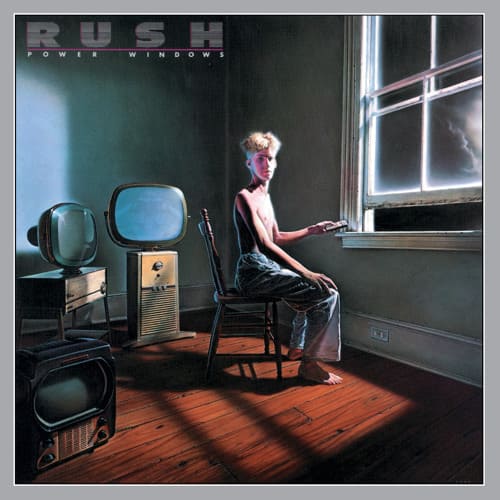
The epic song “Manhattan Project,” by Canadian prog-rock band Rush, dives into the perplexing and colossal historical event that was the development of the atomic bomb during World War II. The song, which was released in 1985 as part of Rush’s eleventh album “Power Windows,” pays respect to the scientific and ethical complexity of the Manhattan Project with explosive orchestration and thought-provoking lyrics. “Manhattan Project” refers to this revolutionary time in human history, with Rush’s musical intellect and narration.
“Manhattan Project” is the album’s third tune, lasting 5:07. Despite not being released as a single, it reached #10 on the Billboard Mainstream Rock Chart in the United States.
The lyrics effectively reflect the crushing secret and urgency that covered the project as scientists raced against the clock to produce the atomic weapon.
“Manhattan Project” became a hit in Rush’s career, appealing to fans and critics alike because of its powerful message and fascinating musical composition — the song’s storyline and musicianship display Rush’s skills to combine storytelling with prog-rock expertise.
Lyrics from Rush’s – ‘Manhattan Project’ song reference for J. Robert Oppenheimer:
“all of the brightest boys
to play with the biggest toys”
3. Russians – Sting
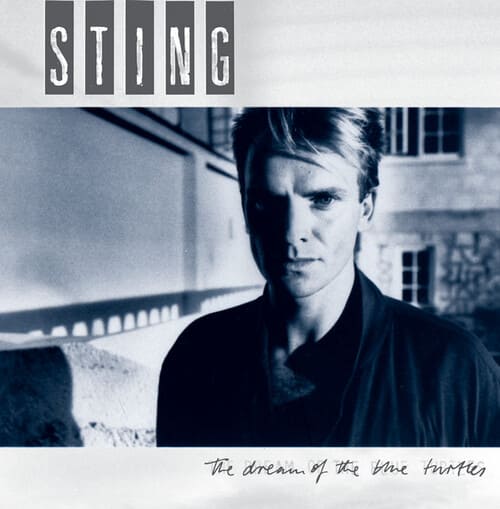
Sting‘s “Russians,” a song, is a grabbing piece on the Cold War era and the tensions between East and West in the late 1980s. The beautiful melody and metaphorical lyrics of “The Dream of the Blue Turtles,” released in 1985 as part of his debut solo album, reflected the worries and dreams of a world on the verge of transformation. Sting’s “Russians” is a moving reminder of the worldwide longing for peace and harmony, time to reach global fans.
Sting discusses the idea that there is an unbridgeable gap between nations with lines such as “We share the same biology, regardless of ideology,” highlighting the common humanity that binds all people. He emphasizes that despite ideological differences, the essential qualities of being a human are shared by all people, and we are all subject to the same possible adverse effects of conflict.
Sting passionately delivers the chorus’ last line, “I hope the Russians love their children too,” conveying the heartfelt wish that, despite political divisions, every country loves the future and well-being of its children. The song’s soul is this powerful message of empathy too.
Lyrics from Sting’s – ‘Russians’ song references for J. Robert Oppenheimer:
“In Europe and America there’s a growing feeling of hysteria
Conditioned to respond to all the threats
In the rhetorical speeches of the Soviets
Mister Krushchev said, “We will bury you”
I don’t subscribe to this point of view
It’d be such an ignorant thing to do
If the Russians love their children too
How can I save my little boy from Oppenheimer’s deadly toy?
There is no monopoly on common sense
On either side of the political fence
We share the same biology, regardless of ideology
Believe me when I say to you
I hope the Russians love their children too”
Sting also talked about this song and why he wrote it:
“I had a friend at university who invented a way to steal the satellite signal from Russian TV. We’d have a few beers and climb this tiny staircase to watch Russian television… At that time of night we’d only get children’s Russian television, like their “Sesame Street”. I was impressed with the care and attention they gave to their children’s programs. I regret our current enemies haven’t got the same ethics.”
4. Waiting for the Great Leap Forwards – Billy Bragg
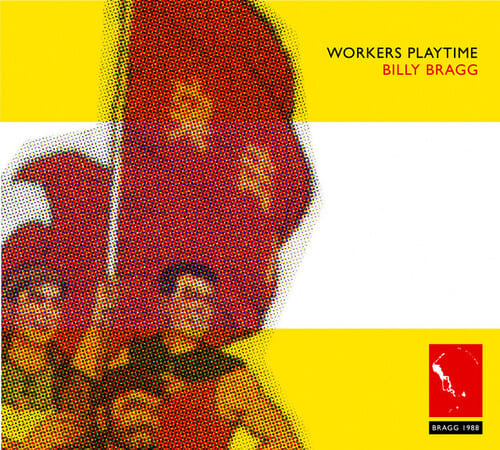
The inspiring song “Waiting for the Great Leap Forwards,” performed by well-known British singer-songwriter Billy Bragg, is a rallying cry for optimism and social activity. The song, included on his 1988 album “Workers Playtime,” grabs Bragg’s unwavering commitment to political activism and the quest for social justice with its moving words and upbeat folk-rock melody. “Waiting for the Great Leap Forwards” is still a timeless call to action for good change because of its inspiring message and beautiful melodies.
The song’s opening acoustic guitar riff sets a passionate and upbeat tone throughout the whole tune. Bragg’s vocals skillfully integrate social critique with a feeling of purpose to make the world a better place in his songs. The Great Leap Forward, a significant social and economic initiative in China in the late 1950s, is mentioned in the song’s title, which Bragg utilizes as a metaphor for the possibility of revolutionary transformation.
The song, which Bragg, a left-wing singer/songwriter, would frequently have, “pulls off the difficult trick of boiling down the whole pop-and-politics-don’t-mix argument,” according to Bragg’s biographer Andrew Collins. The “Camelot” of the John F. Kennedy administration, post-revolutionary Cuba, the Soviet Union, and Robert Oppenheimer are all mentioned in the first two lines.
On September 10, 1988, the song reached 52 on the UK singles charts. Without Bragg’s knowledge or consent, Go! Discs released a “DJ edit” promo with the first verse cut, much to his displeasure.
There were releases in Germany on Line Records and Australia and New Zealand on Liberation Records in addition to the UK release from Go! Discs. USA-based Elektra Records created a 12″ promo.
Lyrics from Billy Bragg’s – ‘Waiting for the Great Leap Forwards’ reference for J. Robert Oppenheimer:
“It may have been Camelot for Jack and Jacqueline
But on the Che Guevara highway filling up with gasoline
Fidel Castro’s brother spies a rich lady who’s crying
Over luxury’s disappointment
So he walks over and he’s trying
To sympathize with her but he thinks that he should warn her
That the Third World is just around the corner
In the Soviet Union a scientist is blinded
By the resumption of nuclear testing and he is reminded
That Dr. Robert Oppenheimer’s optimism fell
At the first hurdle”
5. The Radiance – Linkin Park
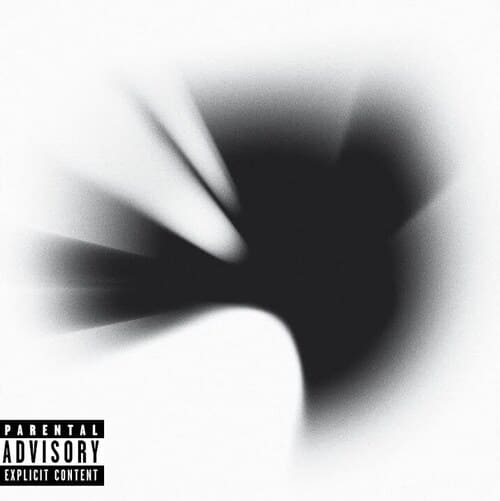
The song “The Radiance” features on Linkin Park‘s fourth studio album, “A Thousand Suns,” released in 2010.
“The Radiance” is a sonic collage that includes audio snippets from speeches and broadcasts and an excerpt from J. Robert Oppenheimer’s famous “I am become Death” phrase, which refers to the first nuclear test. This inclusion establishes the tone for the album’s main topic, focusing on the aftermath of nuclear war, human influence on the environment, and the search for hope and forgiveness.
The song offers a sad interlude to the album’s powerful storyline, allowing one to contemplate the global challenges addressed in “A Thousand Suns.” It serves as a precursor to the following song, “Burning in the Skies,” emphasizing the album’s lyrical themes and its examination of humanity’s propensity for destruction and resurrection.
“The Radiance” shows Linkin Park’s desire to explore musical soundscapes while conveying significant sentiments via their work. The song, part of “A Thousand Suns,” underscores the album’s underlying topic of investigating the intricacies of our modern society and the necessity for collective change.
Lyrics from Linkin Park’s – ‘The Radiance’ references for J. Robert Oppenheimer:
“We knew the world would not be the same
Few people laughed, a few people cried, most people were silent
I remembered the line from the Hindu scripture, the Bhagavad-Gita
Vishnu is trying to persuade the Prince that he should do his duty
And to impress him, takes on his multi-armed form and says
Now I am become Death, the destroyer of worlds
I suppose we all thought that, one way or another”
6. Napoleon’s Hat – Bright Eyes
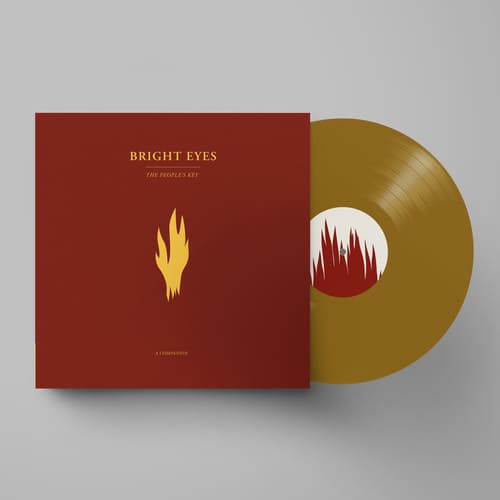
“Napoleon’s Hat” is a song by the indie folk-rock band Bright Eyes. The song was released in 2006 as part of their album “Noise Floor (Rarities: 1998-2005)” and takes listeners on an introspective trip through history’s relics, using interesting analogies to explore themes of identity, impermanence, and the passage of time.
The song’s title, “Napoleon’s Hat,” quickly piques interest and serves as a jumping-off point for delving into more deep subjects. Oberst expertly exploits historical allusions, comparing himself to Napoleon and reflecting on the ephemeral nature of fame and power. Napoleon’s hat symbolism becomes a metaphor for historical artifacts that impact our perspective of history and mankind.
“Napoleon’s Hat” by Bright Eyes demonstrates the band’s ability to conjure emotions and encourage contemplation via their combination of indie folk and rock sensibilities.
Lyrics from Bright Eyes’ – ‘Napoleon’s Hat’ references for J. Robert Oppenheimer:
“Doctor Oppenheimer winced when he felt the broken piece of his pace-maker
Unbuttoned his shirt on a subway platform clutching his chest while his vision blurred
He saw the bane of his creation, the destroyer of the world
Yeah, truth can leap to solace or a lifelong bender
It’s like wading through a wasteland where a town you love once stood
You just cry each time you think of when times were good”